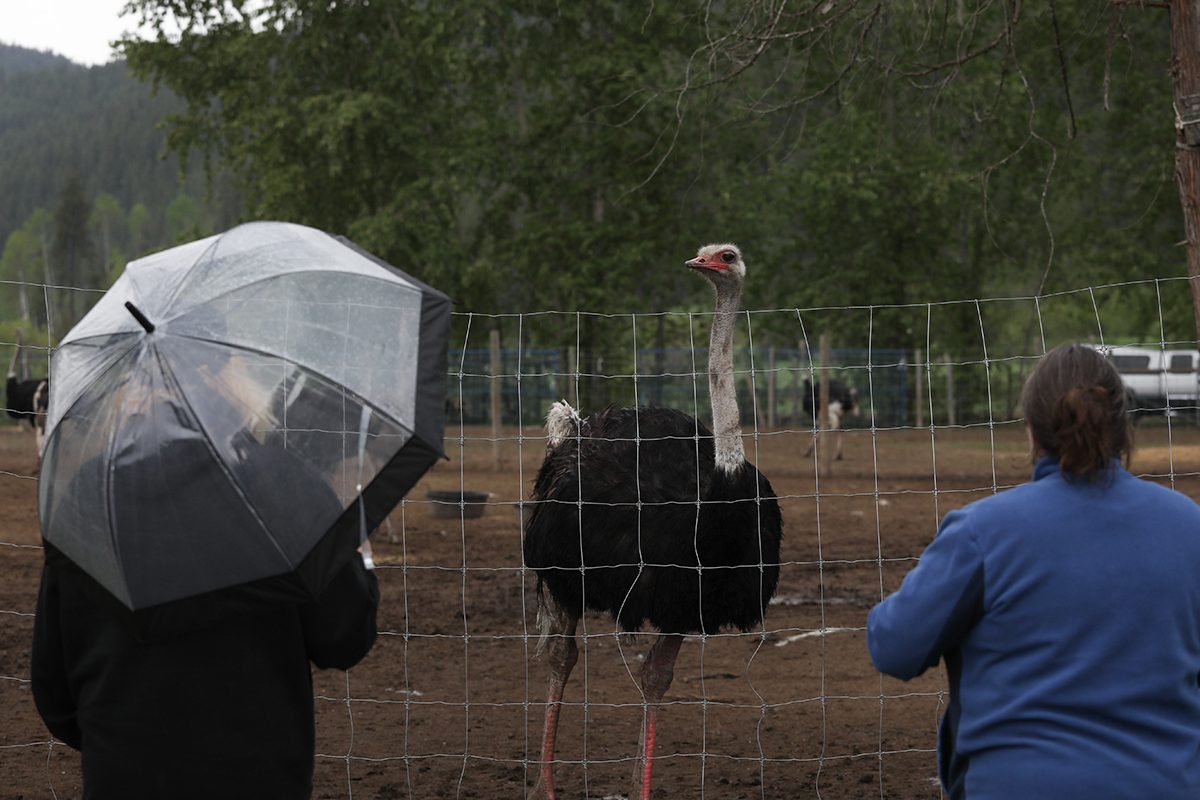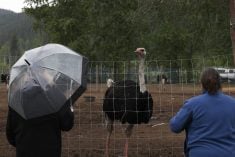A preliminary estimate of winter losses indicates that Ontario beekeepers lost 30 to 35 percent of their colonies this year.
Julie White, Ontario Beekeepers Association spokesperson, said the losses are much lower than last year, when 58 percent of Ontario hives failed to survive the winter.
The estimate is based on a survey this spring of 420 beekeepers in Ontario to gauge winter losses and the status of honeybees in the province. White said the numbers aren’t final, as the Canadian Association of Professional Apiculturists will release more detailed and accurate data in the summer.
Read Also

B.C. ostrich owner condemns violence near embattled farm
One of the owners of Universal Ostrich near Edgewood, B.C. condemned the alleged assault and arson against one of the farm’s neighbours said to have been committed by a protestor. The farm is in a legal battle with federal authorities over a cull order of the farm’s ostriches, which contracted avian influenza.
“(But) it seems like the 30 to 35 (percent) is going to be pretty close,” White said.
The massive losses in the winter of 2014 had an impact on public policy in Ontario. Last fall, the provincial government unveiled regulatory changes to reduce the use of neonicotinoid seed treatments on corn and soybeans in Ontario by 80 percent.
Ontario will establish requirements for the sale and use of corn and soybean seed coated with neonics, in which farmers will have to prove there is a pest infestation in a corn or soybean field before using the product.
Neonicotinoids have been linked to bee colony losses and bee deaths in North America and Europe.
Tibor Szabo, OBA president and beekeeper from Moffat, Ont., said about 35 percent of his hives didn’t make it through the winter. It wasn’t great but was much better than last winter when he lost 70 percent of his colonies.
Szabo said his winter losses might have been lower because he consolidated weaker colonies in the fall to boost the number of bees in a single hive.
White said 2014-15 was an extremely cold winter in Ontario, but not nearly as long as last year.
Shorter winters are usually beneficial for bees because the colonies are less likely to run out of food stores. Szabo said a long winter can exacerbate losses, but robust bee colonies can overcome a harsh weather.
“Strong, healthy hives with adequate resources are independent of the weather. That includes wintering. They have no problem over-wintering, they’re temperate zone insects and they’ve adapted for millions of years to (winter),” he said.
“But if they are compromised, then they will have great difficulty (getting) through the winter.”
White said a number of factors can compromise colony health, but neonics are “central to the other issues.”
“Bees are less likely to be able to fight off viruses if they are exposed to neonicotinoids,” she said.
“It does affect things like nutrition … (and) it affects their brain capacity to navigate and communicate back to the hive.”
Szabo said anecdotal evidence indicates that beekeepers in southern and western Ontario are struggling compared to apiarists in regions with less cropland because neonics are not as prevalent.
“Ontario is a big province and location, location, location is what it’s about,” he said.
“Parts of Ontario have poison in the environment … and other parts do not. The guys that are in the north, where they’re not growing corn or soy … their bees are doing awesome. It’s night and day.”
Contact robert.arnason@producer.com















